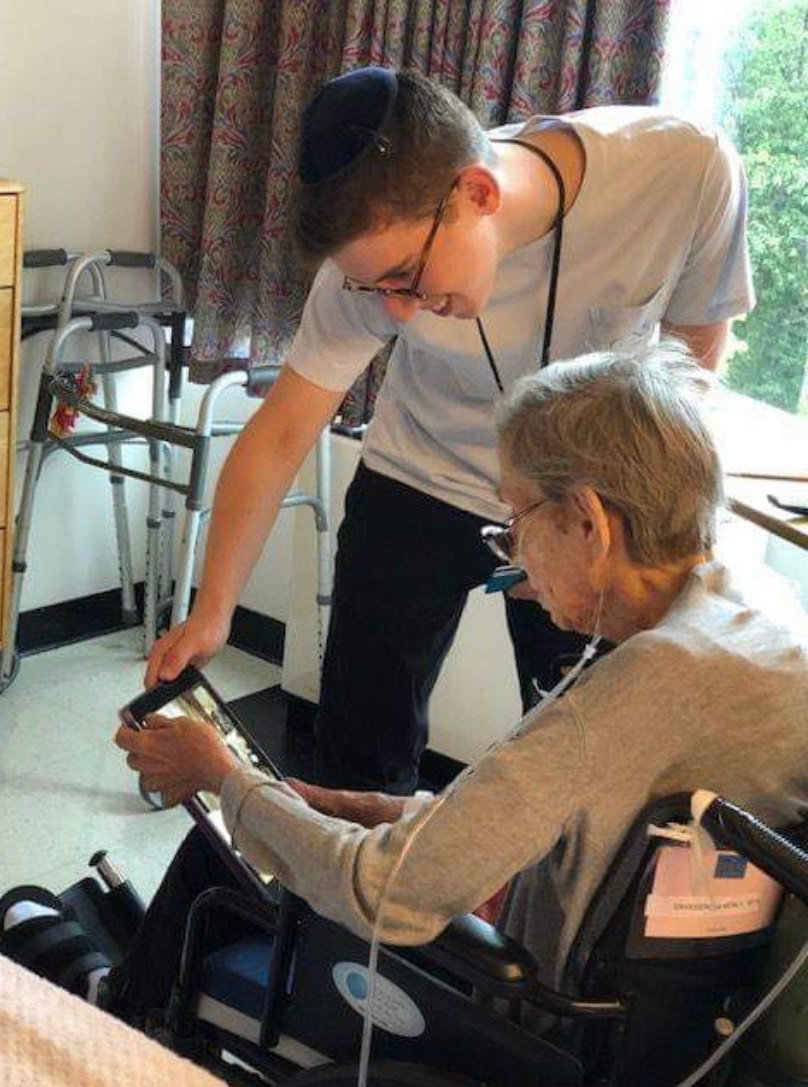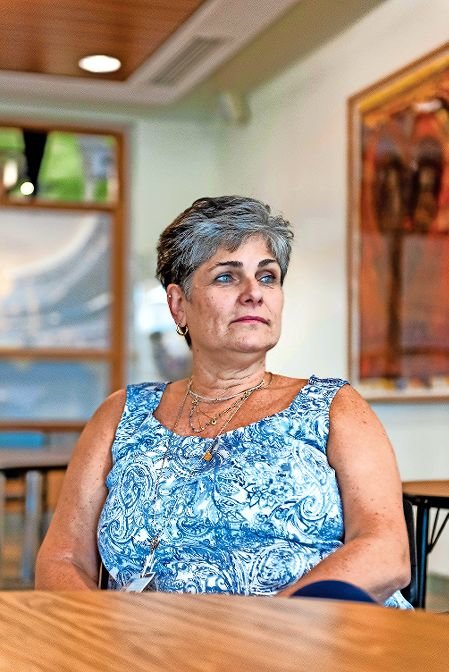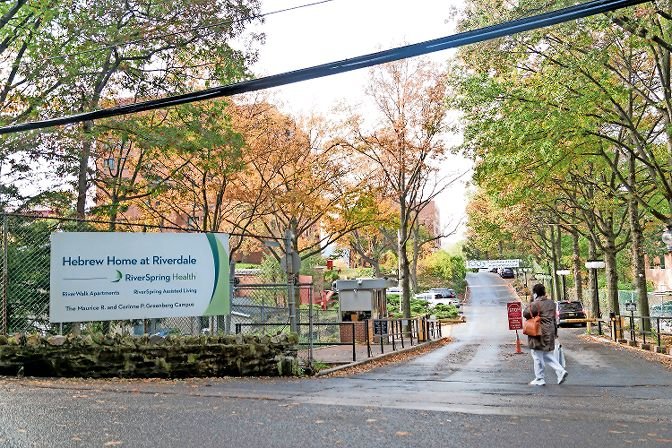SAR teen proves no one is ever too old to learn something new
A community’s elders are among its most important groups of people. The history of the area, individual experiences that reflect what’s changed and what’s stayed the same, are tales best told by its longtime residents.
However, in recent months, interactions between senior citizens — especially those living in nursing facilities — and their community became increasingly impossible because of the coronavirus pandemic. For Salanter Akiba Riverdale Academy student Isaac Ohrenstein, the connection between youth and elders — students and mentors of age — should always be present and strong.
“I began working with a senior living facility when I was in seventh grade,” Ohrenstein said. “Back then, I lived in St. Louis, and I’m in St. Louis now for family. With technology, however, I can still teach and interact with seniors no matter how far away I am.”
Ohrenstein has worked with seniors for years, teaching them the strange world of digital technology, continuing that even after he moved to Riverdale a couple years ago. But within months of his arrival, he began volunteering at the Hebrew Home at Riverdale, as though he’d been there all his life. Josephine Catalano, the volunteer services director at the Palisade Avenue facility, remembers how much the residents appreciated Ohrenstein’s tutoring.
“We’d always get tech questions from residents,” Catalano said. “Isaac would come in on Sundays and have a list of residents that needed help.”
Many seniors have issues adjusting to digital devices, systems of communication and media they never experienced at a young age, when learning new functions is easiest, Catalano said. Having an actual teenager detail how those devices work might be an easier way for seniors to learn.
“At the start, I explained iPhones and iPads,” Ohrenstein said. “Most are actually not working with computers. Especially in senior living facilities, they’re trying to learn FaceTime and now other face-to-face videoconferencing apps.”
This technology has become vital in keeping everyone connected — especially with those who can’t come to places like the Hebrew Home to visit relatives and friends.
Ohrenstein uses a two-part troubleshooting method to first find out what someone might not understand, and then explain new features. He was even ready to expand those services even wider at the Hebrew Home, according to facility spokeswoman Wendy Steinberg, but then the coronavirus happened. The Hebrew Home, like other nursing facilities, have been completely locked down since March.
“We had him set up a ‘Tech Talk with Isaac’ series on Sunday afternoons,” Steinberg said. “He only got to do one of them before our campus closed to visitors. At that time, we spoke about him creating short videos that we could play on the internal system for the residents, all around tech.”
These would further expand Ohrenstein’s methods of teaching seniors, this time with a group element. During the only Sunday tech seminar, Ohrenstein set up a projector, connected it to his computer in the Hebrew Home’s library, and pulled up Google Maps. He asked each of them the address of their childhood homes, or any home they’d wanted to see, pulled up a street view on the projector.
It was the first time some of them had seen their homes in 30 or 40 years, Ohrenstein said.
Since the campus’ closure, Ohrenstein has created a series of videos detailing other features of the digital plane.
“So there are currently eight videos, some between five and 15 minutes, each revolving around another tech topic,” Ohrenstein said. “I even have one explaining how to use emojis. What they hope to do in the next few weeks is to stream the videos on the home television channel.”
Catalano considers Ohrenstein’s work to be just one example of the long tradition of mutual aid and community expressed through the connection between SAR and the Hebrew Home.
“Due to our intergenerational programs with SAR, there are fifth graders that come visit our residents and become pen pals with them,” Catalano said. “Isaac has brought patience and calm. Sometimes he would repeat himself, but it didn’t bother him at all. Even though he’s halfway across the country, he’s still interacting with them, reminding them of a familiar face.”
As Ohrenstein’s videos premiere at the Hebrew Home, the 17-year-old continues to brainstorm ideas for new videos seniors can learn from. He hopes to hear other ideas from others as well.
“This is another example of how this community is very tightly knit,” Ohrenstein said. “It’s already very hard for a senior to live in that kind of environment, so the more we can help them and interact with them, the easier it will be.”












